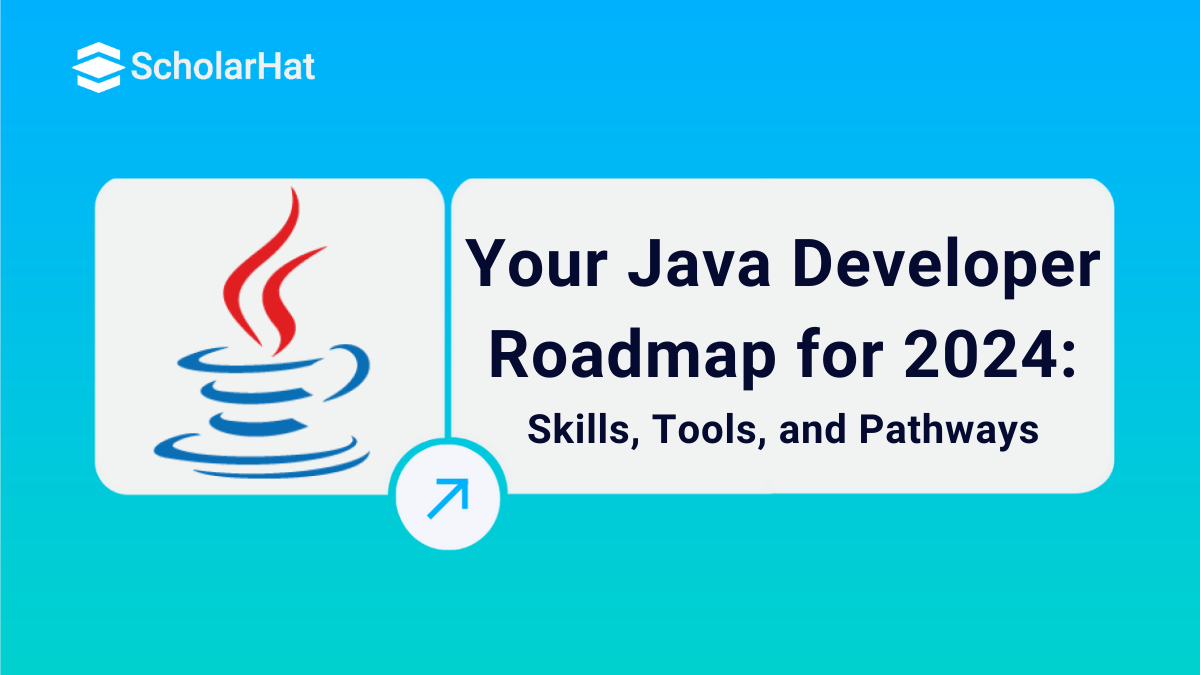18
AprBest Java Developer Roadmap 2025
Java Developer Roadmap 2025
Using a Java Roadmap will help you achieve your goal of becoming a Java programmer. A summary of how Java works would be a wise first step for those who are completely new to this idea.
After you have a solid grasp of Java's fundamentals, you can gradually advance to studying its most recent developments. Acquiring a basic understanding of the programming language is the primary and crucial step. Let's take a closer look at this roadmap. You can go through our Java certification course free and Java tutorial to learn in-depth concepts.
Roadmap to Learn Java:
1. Learn the fundamentals.
Every programming language is fundamentally the same.All a computer program is capable of is:
- Utilize variable declarations to manage data.
- Perform conditional logic with if-else statements.
- Use iterative loops to quickly and repeatedly complete all of this.
The first thing you should do as a Java developer is study these foundational concepts. These types of concepts will be more explored in core Java so let's see the core Java.
2. Core Java:
A solid knowledge of basic concepts gives you a deeper understanding of how Java works - and more importantly, how Java differs from languages like Python, and JavaScript.
Data Types and Variables:
1.) Data Types:
There are two types of data types in Java
- Primitive Datatypes
- Non Primitive Data type
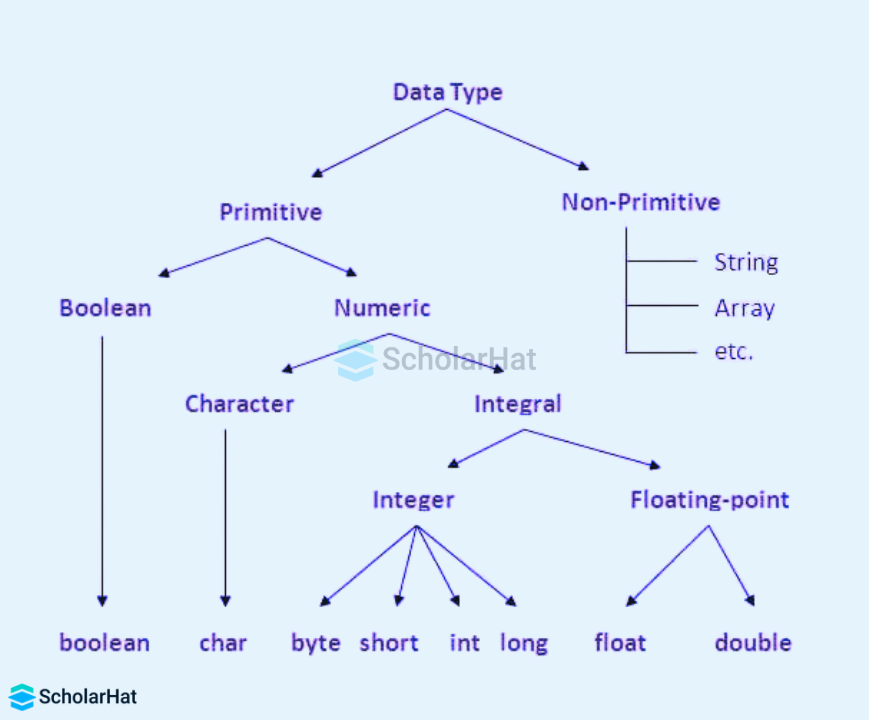
2.) Variable
A variable is a memory address that can be changed.If a memory address cannot be changed, it is called a constant.A variable is the name of a location where data is stored.Space is allocated in memory when a variable containing data is stored.You can define variables using a combination of numbers, letters, and underscores.There are three types of variables: local, instance, and static
Features and Architecture
Features:
- Simple.
- Object-Oriented.
- Portable.
- Platform Independent.
- Secured.
- Robust.
- Architecture Neutral.
- Interpreted.
Architecture:
Java Architecture differs in the following steps:
- Java has a compilation and interpretation process.
- The Java compiler converts Java code to bytecode.
- Next, the JVM converts the bytecode to machine code.
- The machine code is then executed by the machine.
Read More - Mostly Asked Java Multithreading Interview Questions Read More - Advanced Java Interview Questions And Answers
3.) Operator and Expressions
Operators:
- Arithmetic Operators
- Unary Operators
- Assignment Operator
- Relational Operators
- Logical Operators
- Ternary Operator
- Bitwise Operators
- Shift Operators
- instance of operator
Expressions:
- Arithmetic expressions
- Relational expressions
- Logical expressions
- Conditional expressions
- Assignment expressions
4.) Conditional Statements and Loops
- if
- if-else
- else-if ladder
- switch
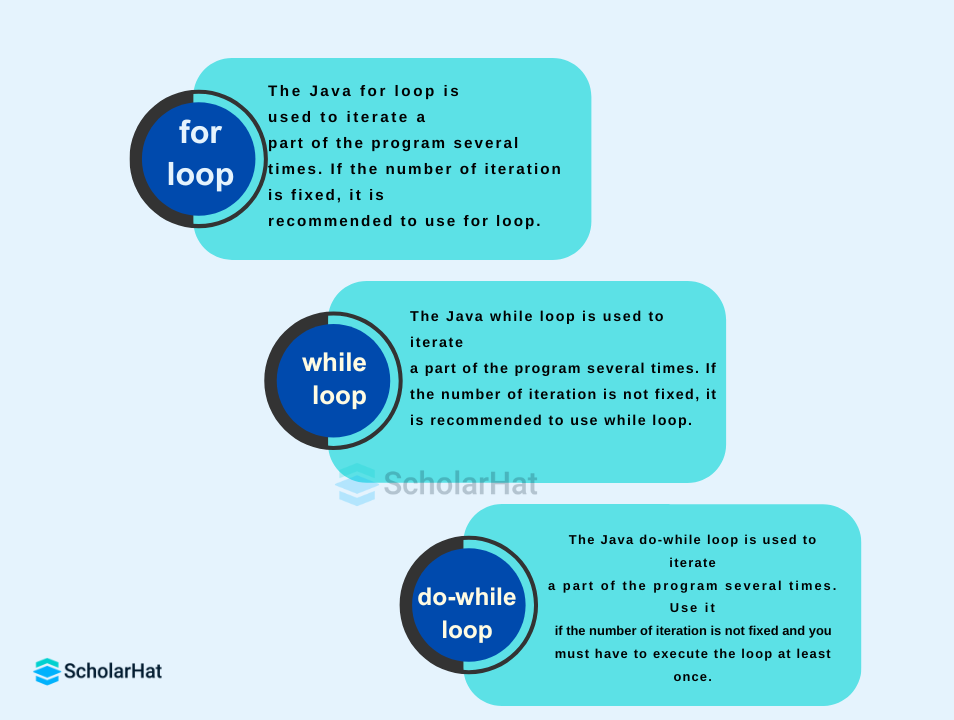
Master Object-Oriented Programming.
If we talk about loops, variables, and conditional statements all programming languages are pretty much the same. But in the case of programming languages, they differ in how they organize data.
Java is an object-oriented programming language, It organizes data into components known as objects. That means the next stop on the 2023 Java developer’s roadmap is to learn object-oriented programming analysis and design.
Java object-oriented analysis and design concepts:
In Java, object-oriented programming means organizing data into several categories:
- Classes.
- Interfaces.
- Enumerations.
- Records.
To understand how objects work, you’ll also want to learn how to apply object-oriented concepts such as:
- Abstraction.
- Encapsulation.
- Inheritance.
- Composition.
- Polymorphism.
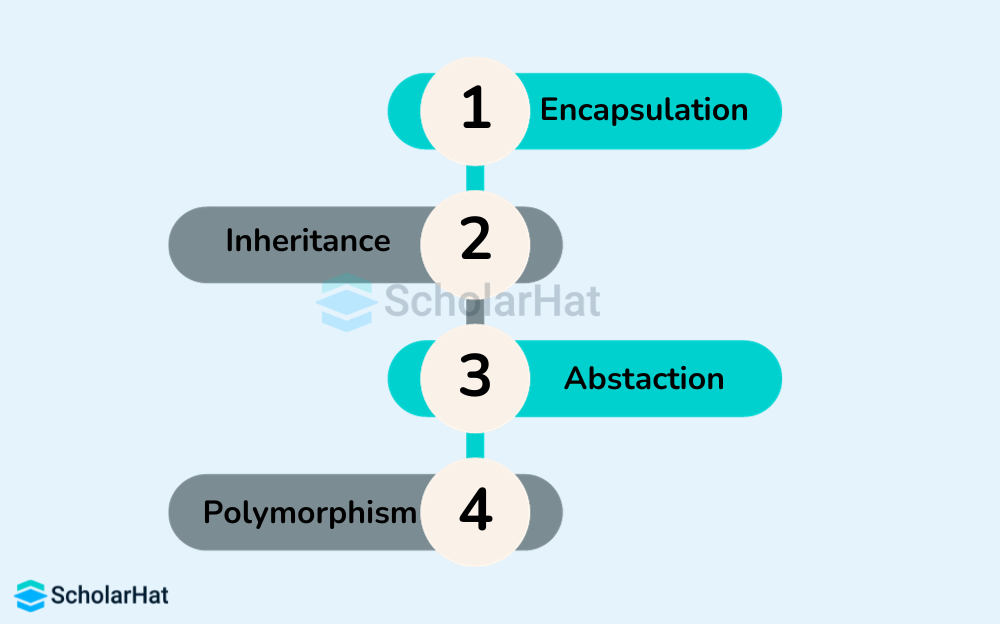
With these components and concepts under your belt, you’ll be an object-oriented expert.
Read More - Top 50 Java Interview Questions
Learn the Java Collection classes
Java has a crucial Collections API with a variety of specialty components that solve unique data processing problems.Collection-related concepts:
- ArrayLists vs. Vectors.
- HashMaps vs. Hashtables.
- Lists vs. Sets.
Individual collection classes we will have to learn about include:
- Iterator.
- Dictionary.
- LinkedList.
- Queue.
- Dequeue.
- ListIterator.
- SortedSet.
- TreeSet.
Streams
As mentioned earlier, a programmer mostly works with datasets. The introduction of functional programming was also a huge change for the Java platform. Combine the two to get the Java Streams API.
- Primitive Data type
- Java Stream API
Java Stream is a special pipeline for data processing, filtering, and aggregation. Java streams are incredibly powerful and efficient. They are also incredibly scary when you first meet them. However, Java streams are self-explanatory once you understand the concepts behind them. Modern Java development requires a deep knowledge of streams.
3. Learn Advanced Java
1.) Design Pattern:
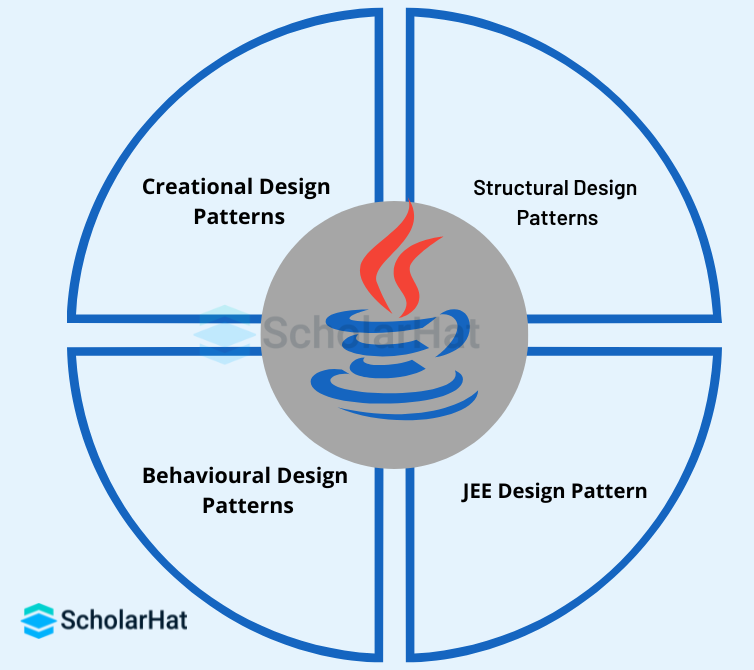
2.) JVM:
It is a specification that specifies how the Java Virtual Machine operates.However, implementation providers are independent regarding algorithm selection.Implementations were provided by Oracle and other companies.Its implementation is called JRE (Java Runtime Environment).Runtime Instances Every time you write a Java command at the command prompt to run a Java class, an instance of the JVM is created.
3.) Garbage Collection:
Garbage collection is an important feature for developers who write and compile Java programs on the Java Virtual Machine or JVM. Java objects are created on the heap, a section of memory reserved for programs. When objects are no longer needed, the garbage collector finds and tracks these unused objects and deletes them to free up disk space. Without garbage collection, the heap will eventually run out of memory and cause an OutOfMemoryError at runtime. Java garbage collection helps Java environments and applications operate more efficiently. However, there are different types of garbage collectors in advanced Java.
Best Practice and Code Structure:
By following good Java best practices, your entire team can effectively manage Java projects.
- Creating a proper project and source file structure
- Using proper naming conventions
- Avoiding unnecessary objects and hard coding.
- Commenting on your code correctly will help you effectively maintain your project code.
- You can easily improve the performance of your Java applications by using the appropriate built-in methods and functions.
- Writing meaningful logs allows developers to quickly identify and fix errors.
4. Install the JDK and an IDE.
We can explore the fundamentals of Java using online compilers and tools, but there comes a time when we need the power of an IDE. That’s the next stop on the 2023 Java roadmap for developers.
Install the JDK
At most, a Java programmer should have the latest long-term support (LTS) release of Java installed on their local machines, along with a modern IDE such as:
- Eclipse.
- NetBeans.
- Visual Studio.
- IntelliJ by JetBrains.
While IntelliJ isn't free like the other three, it is popular in the business sector and offers trial licenses.Try any of Eclipse, NetBeans, or Visual Studio if you prefer an open-source option.
Explore the JDK
Study the JDK.After installing the JDK, you should investigate the many tools contained in the \bin directory, including:
- The compiler for Java.
- he Javadoc generator.
- The JShell editor.
- The javap class disassembler.
- JStat for metrics gathering.
- The Flight Recorder for Java
After all this, the number of feature-rich performance, monitoring, and troubleshooting tools included in the JDK will amaze you.
5. Explore the standard Java APIs
With a fully functional IDE, the next step on any Java developer's agenda is to explore the many standard Java APIs that come with the JDK. The JDK comes with hundreds of packages and classes. They allow you to perform many tasks, including :
- Create your web server using the java. nio package.
- Use a database with JDBC components.
- Create simple Windows applications using Java Swing.
- Creating threaded applications using concurrent APIs.
Very few programming languages contain as many APIs as Java. Use these APIs to develop your Java programming knowledge.
6. Building Tools:
To build Java projects, you need to understand the different build tools. Some great tools you can use to build Java projects include:
- Maven
- Gradle
- Ant
7. Servers:
After you create the server web application, deploy it. Since you will be deploying your web application to a server, you need to know at least one server to use.Tomcat is the most widely used server.JBOSS is also used in many places.
- Tomcat
- Weblogic
- JBOSS
- WebSphere
- Jetty
8. The Databases:
Databases play an important role in creating Java applications, as data storage is an important aspect.Therefore, if you work in an organization, you need to work with databases.To perform various operations on a database, you need to create queries. The topics you need to study are:
1.) SQL:
- ACID
- Joins
- Indexes
- Constraints
2.) Advanced SQL:
- Procedures
- Packages
- Function
- DBA
3.) NoSQL:
- MongoDB
4.) ORM (Object-Relational Mapping)Framework:
- JPA (Java Persistence API)
- Hibernate
- iBatis
- Spring Data JPA
9. Testing:
Testing is a very important stage in the development process.Therefore, you need to know how to test Java applications to minimize errors and maximize efficiency.
- Unit Testing
- Integration Testing
- Code Debugging (Required)
- Junit
- Mockito
10. Logging
Various logging libraries are available for Java. Therefore, when building Java applications, you need to log errors or files to get information about what is happening within the system. You should be familiar with logging libraries Such as Log4j, Log4j2, and Log-back.
11. Learn Frameworks:
There are a lot of different frameworks available in Java. These frameworks foster easy debugging, extensive code reusability, improved code efficiency, and reduced overall development time. So mentioned below are some of the Java Frameworks that you can learn:
- Spring
- Spring Boot
- Hibernate
- JSF
- GWT
- Micronaut
12. Practice makes man perfect:
Learn to practice, and stay updated. JavaBackend Development - Join the Java development course and embark on an exciting journey to master backend development efficiently and on time.
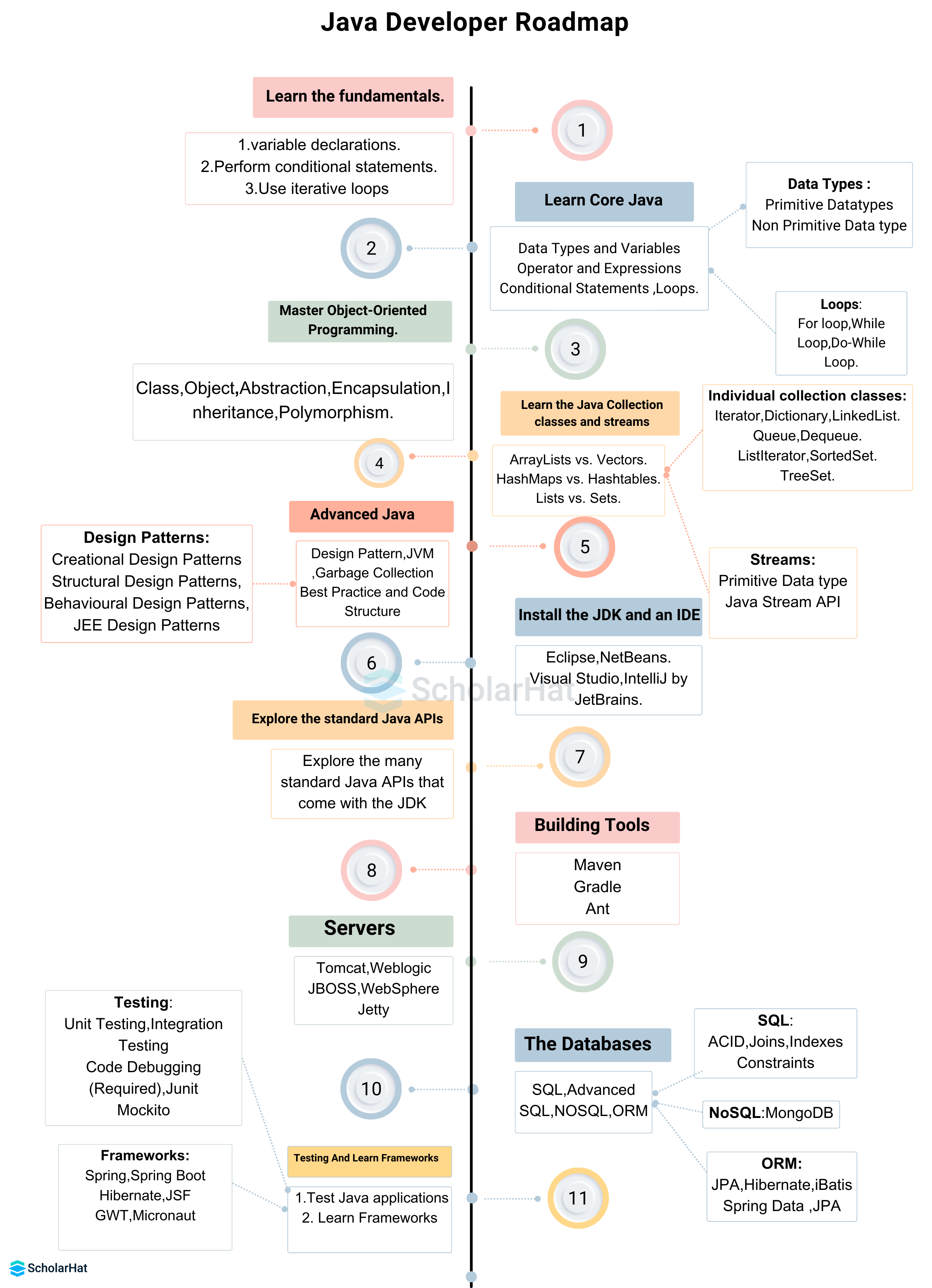
General Knowledge Development Skills for Your Java Developer:
- Learn more about GIT and how to create a repository on GitHub. Don't forget to share your coding with others. GIT is a valuable tool for version control and project management.
- Familiarize yourself with HTTP(S) protocol, and request methods (DELETE, GET, OPTIONS, POST, PUT, PATCH).
- If you haven't become an expert at Google search, learn how especially using advanced search techniques.
- Reading Algorithms and Data Structures.
- Learn more about Docker and deploying projects in Docker containers.
- Learn Jenkins to help you master Continuous Integration/Continuous Deployment (CI/CD) concepts.
- Project management software like Jira helps track issues and bugs.
- The cloud is the future, so manage your deployment with:
- AWS Cloud
- Azure Cloud
- Google Cloud
- Heroku Cloud
- Testing
Java Developer Career Options
- Junior Developer: Consider this your entry-level. Everyone starts here. Junior developers write, test, analyze, and fix code.
- Senior Developer: They oversee the entire project, write the code, and act as a point of contact for management.
- Web Developer: This position typically emphasizes back-end development, and the developer is responsible for implementing and maintaining server-side code. As many servers are moving to the cloud these days, developers should have experience and skills in coding in a cloud environment.
- Java Architect: Traditional architects design buildings. Java architects design and develop the look and feel of an application.
- JavaEE Developer: These developers create and maintain enterprise software and are usually employed by large companies.
- Java Android Developer: Android mobile operating systems have a significantly larger market share than iOS, so there is more demand for professionals who can create or add features to Android-based apps.
| Read More: Java Full Stack Developer Roadmap for Beginners |
Summary:
That’s all about the 2025 Java Roadmap. This is an excellent resource to learn Java in 2025 and become a better Java programmer. We have kept it simple so that most people can follow it and only included the important things. Although you can explore in-depth Java concepts by considering our Java Programming Free Online Course. Enjoy Coding..!
| Download this PDF Now - Java Developer Roadmap PDF By Scholarhat |


